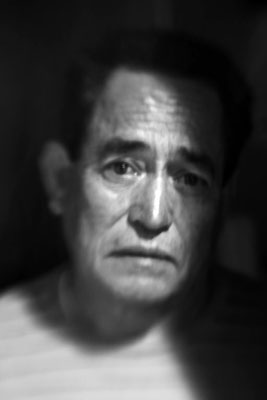All Nonfiction
- Bullying
- Books
- Academic
- Author Interviews
- Celebrity interviews
- College Articles
- College Essays
- Educator of the Year
- Heroes
- Interviews
- Memoir
- Personal Experience
- Sports
- Travel & Culture
All Opinions
- Bullying
- Current Events / Politics
- Discrimination
- Drugs / Alcohol / Smoking
- Entertainment / Celebrities
- Environment
- Love / Relationships
- Movies / Music / TV
- Pop Culture / Trends
- School / College
- Social Issues / Civics
- Spirituality / Religion
- Sports / Hobbies
All Hot Topics
- Bullying
- Community Service
- Environment
- Health
- Letters to the Editor
- Pride & Prejudice
- What Matters
- Back
Summer Guide
- Program Links
- Program Reviews
- Back
College Guide
- College Links
- College Reviews
- College Essays
- College Articles
- Back
He'd Been Happy Once
They were a pair of pale, watery eyes sunken into a mass of sallow wrinkled skin. She'd been beautiful once. But time had long since washed away the color in her clothes, the red in her cheeks, the pigment in her eyes. She shuffled along the hallway with the same kind of dazed stiffness that characterized everyone there. Unaware, unseeing, uncaring.
I walked in the opposite direction of the long hallway with the characteristic amount of space every visitor kept between themselves and the patients. Besides the brief, cursory glance I paid her, I kept my eyes carefully averted from the old woman.
A few feet shy of passing her, she suddenly reached out and grabbed ahold of my arm with a surprisingly strong grasp.
In that moment, those pale watery orbs burned bright and hard, boring unflinchingly into my own, fourteen-year old eyes.
“I know you,” the old woman hissed, “Get out.” Shivers danced down my spine and I tried to pry my arm away. The iron grip didn’t loosen. “You can’t trust them.”
The old woman’s breath rested hot and heavy on my cheek, curling around my lungs, choking me. By the time a nurse came over and gently pried her off, I was paralyzed and left standing there, motionless.
***********************************************
My grandfather has Alzheimer's. My family moved him into an intensive-care institution when I was fourteen, and it was on my very first visit that I met the old woman with the hard eyes and the harder grip. She has the same illness as my grandfather.
And yet, as we pulled up to the large, sterile building marked “Institution,” I was still convinced that there had been a mistake. We passed room after room of silent, crying, shaking, unmoving, babbling, and mute patients, and I remember being more scared of my grandmother’s quivering smile than of my mother’s stoic frown. How could my grandfather have ended up here? He'd been perfectly healthy once. He'd been happy once.
When we got to my grandfather’s room, I was taken aback by how much he’d deteriorated in the months since my parents had him moved to the facility. He could barely walk and all he did was mutter incoherent words incomprehensible to everyone but himself. The loud, vibrant grandfather from my childhood had been replaced by this thin, child-of-a-man, prone to fits of anger and depression, who no longer recognized me.
I finally saw it, why my grandfather was there, why his room was in such close proximity to the old woman’s, why there was a padlocked door for every hallway, why there were security guards on every floor.
Alzheimer’s. Depression. PTSD. Insanity.
They trapped the bodies of the men and women whose families sent them away, unable to take care of them anymore. My grandfather found himself there in the early stages of his disease, and in the time he’d spent wasting away, he was rendered completely useless, never again to walk freely or live independently.
It was terrifying really, the state in which he lived, would continue to live. The state in which they all lived. These people with stories and pasts that were slowly leached out of them in this institution that promised the preservation of those very lives.
I understood then.
I understood the hopelessness exuding from this place, the futility of idolizing youth and vitality when it could all just eventually be reduced to this emptiness. But as I watched my grandmother painstakingly feed spoonfuls of cut-up food and lukewarm soup to my grandfather, as I saw him track her every movement across the room, I recognized something else in them besides the relentless depression. And I realized that, perhaps, I didn’t understand after all.

Similar Articles
JOIN THE DISCUSSION
This article has 0 comments.
